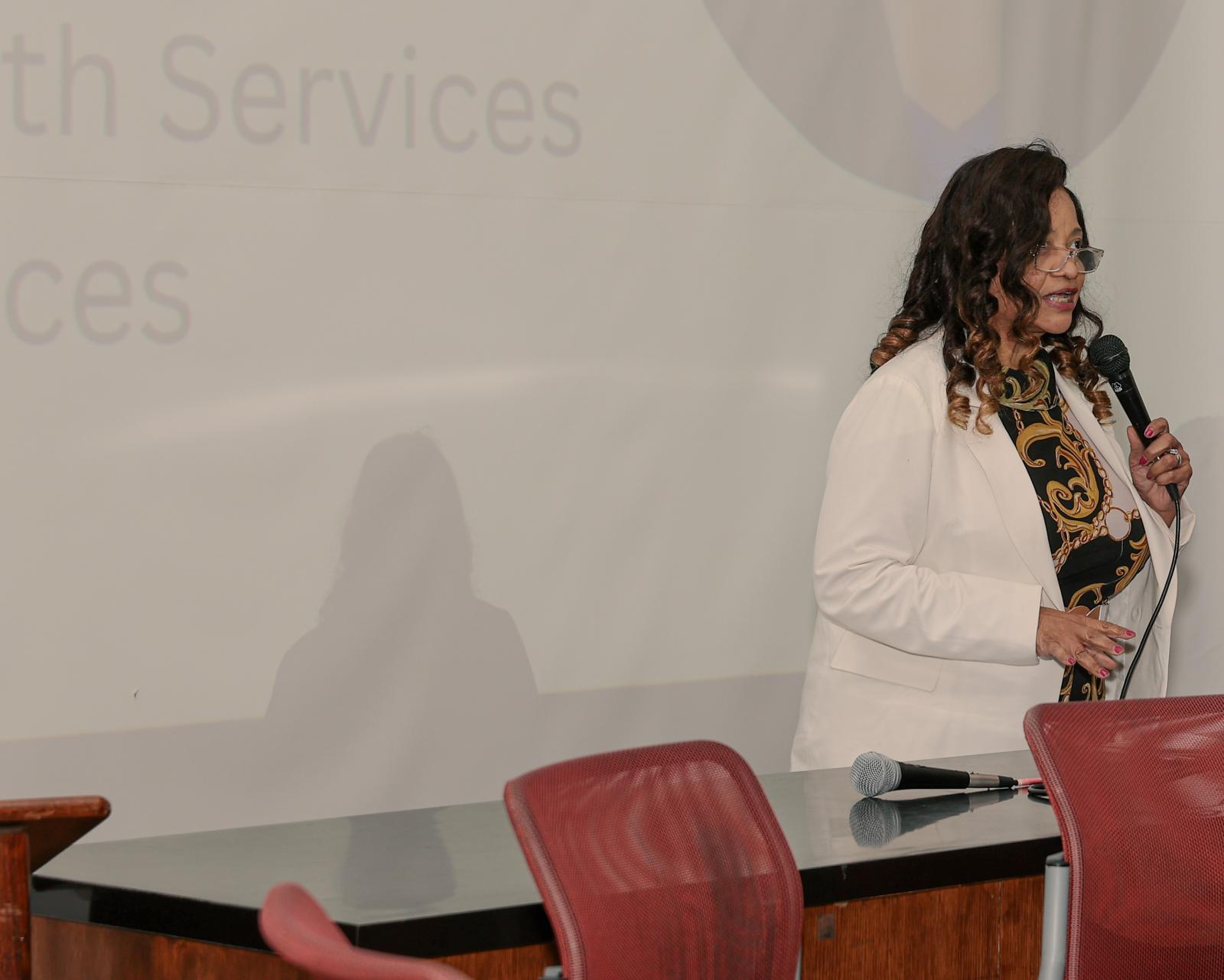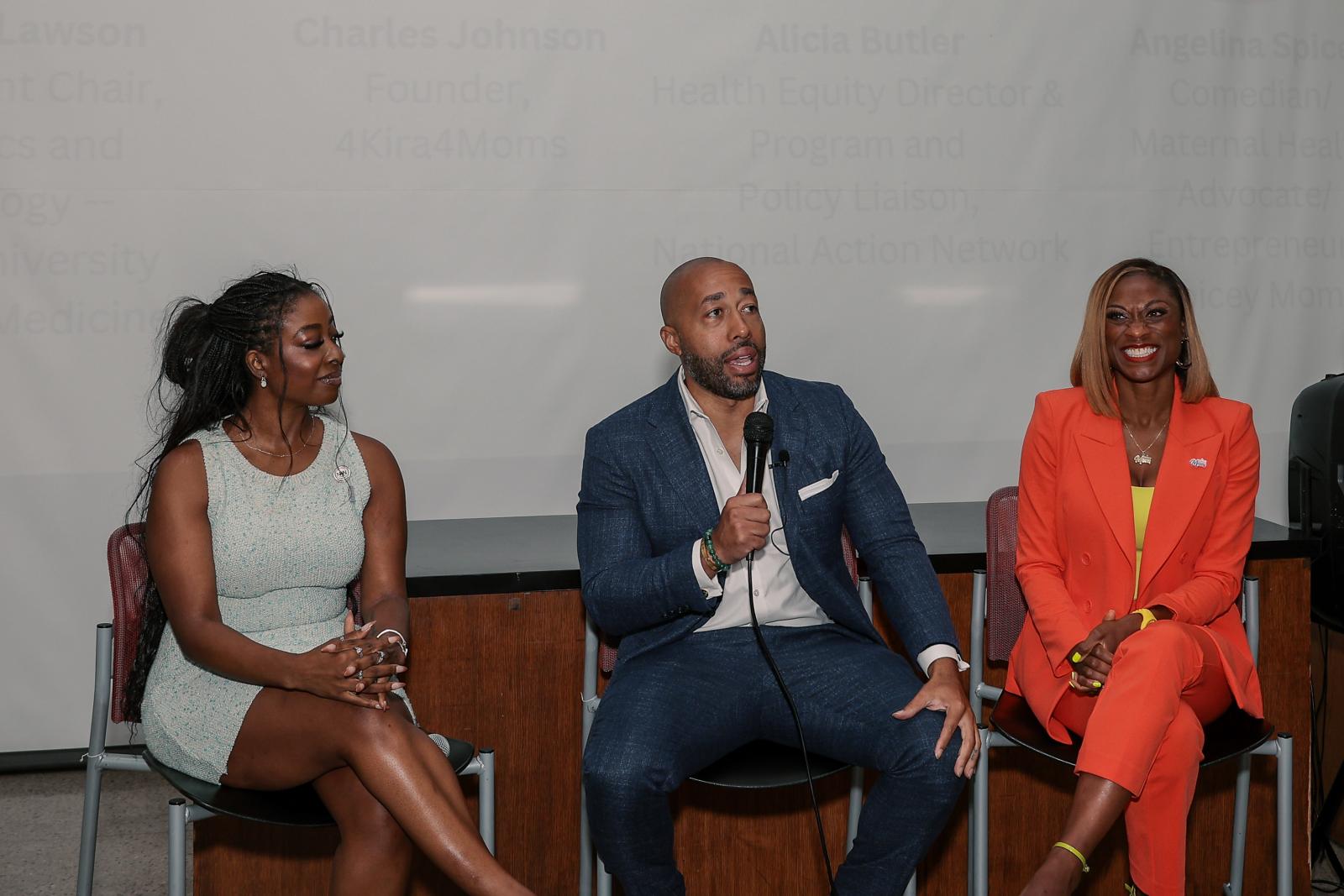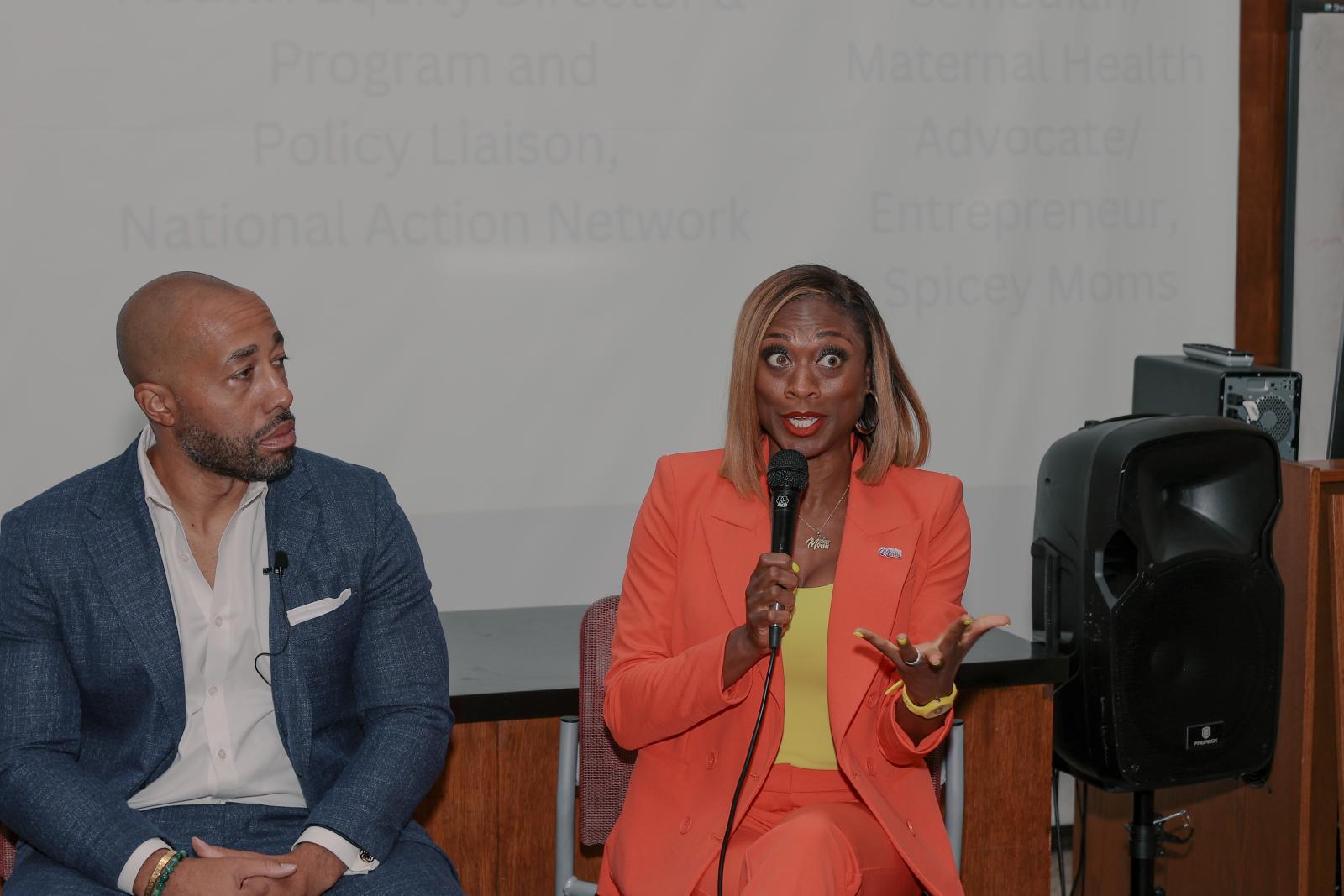Howard University Hosts Panel to Address Black Maternal Health Crisis
In partnership with Walmart and the PNC National Center for Entrepreneurship, Howard University hosted a Maternal Health Panel at the University’s College of Medicine.
The panel coincided with the Congressional Black Caucus’ 53rd legislative session as congressional affiliates drafted and advocated for bills to address the Black maternal crisis. Black women are currently dying at three times the rate of white women during childbirth. The Centers for Disease Control and Prevention (CDC) estimates that 80% of those deaths are preventable.
Connecting Black Maternal Advocates
Before the panel, Jazmin Long, CEO and founder of Birthing Beautiful Communities in Cleveland, Ohio, and Que English, director of the Center for Faith-Based and Neighborhood Partnerships for the U.S. Department of Health and Human Services (HHS), spoke about their efforts to minimize Black maternal mortality rates.
Long emphasized her services being provided at no costs for all Black women, highlighting the importance of “paying it forward” for generations of Black children to come.

“We train a workforce of doulas…outside of the 70 that we have working for us, there are 200 more that do not work for our organization who choose to become entrepreneurs and practice doula services in their own businesses,” Long said. “Many of them are not doing this for money. Many of them are doing it because they understand the importance of a mom to have social support and labor and delivery support during birth and labor.”
English spoke to some of her center’s initiatives, including a 25-city tour to encourage practices that eliminate the racial and ethnic disparities of Black women’s mortality rates. Community connections, English said, is the defining factor on discovering solutions to diminishing Black women’s mortality birthing rate.
“At every leg of the tour, we introduce them to a village that many don’t even know exist for them around mental health services, health care coverage, lactation, breastfeeding support, resources for babies and for dads and doula and delivery services,” English said.


A Panel of Black Maternal Advocates
Shari Lawson, MD, MBA, served as panel moderator. Lawson is chair of the department of obstetrics and gynecology in Howard University’s College of Medicine. “Black maternal health is something that is my passion,” Lawson said. “When I first learned about infant mortality, I was just completely struck by the idea that Black babes in America, one of the foremost countries in the world, really have such a terrible survival rate.”
The featured panelists were 4Kira4Moms founder Charles Johnson, National Action Network (NAN) health equity director and program policy liaison Alicia Butler, and comedian and alumna Angelina Spicer (BFA ’03).
Johnson started 4Kira4Moms after his wife Kira died in 2016 after giving birth to their second son Langston. A CT scan was requested but never conducted, and Kira did not receive care for more than 10 hours. She died with more than three liters of blood in her chest.

“I was transparent about the fact that when I walked into that hospital, I never thought that my wife would not out to raise her sons,” Johnson said. “It never crossed my mind.”
Since Kira’s death, Johnson has advocated for maternal health policies and called for investigations into hospital protocols when listening to the concerns of Black mothers and their families.
“I began to hear other stories from families whose mothers had made that ultimate sacrifice trying to give the gift of life,” Johnson said. “I’m making a deliberate call to action that we need to have a goal as a country of zero preventable deaths from pregnancy and pregnancy-related symptoms in the next five years.”
The community approach will take care of our everyday needs”

Spicer’s journey into Black maternal health advocacy began with her own motherhood experience. After birthing her daughter, Spicer recalled moments where her emotional, mental, and physical state were unrecognizable, causing her postpartum anxiety and depression.
“I felt unprepared, unqualified, overwhelmed,” Spicer said. “The weight of responsibility of being a mom really hit me hard after I had my baby.”
Spicer would subsequently undergo a 10-day inpatient psychiatric stay to regulate her symptoms. She discusses that experience, and the realities of motherhood, in comedy clubs and more casual spaces to bring the messaging around Black maternal mortality rates to listeners’ front door. Spicer also embarked on a multi-city tour she titled “The Postpartum Revolution,” traveling in a pink bus emblazoned with its eye-catching name.
Labeling herself an “accidental activist,” Spicer said that her “Spicey Moms” brand allows her to fuse the funny with the misfortunate.
“It’s important to me that moms know what motherhood truly looks like,” Spicer said. “Finding that balance is always tricky. Most times, we’re talking about things that are most times shameful.”
Butler was disheartened by the apathy she discovered around Black maternal health and has spent much of her time at NAN developing solutions to such a glaring issue.
“Once I got into the maternal health space, I was mortified to find out that Black women are dying, and nobody cares,” Butler said. “I was able to build out different partnerships…and I realized we needed to approach this from a reproductive justice lens because civil rights organizations acknowledge that race is a factor in all of these implicit biases.”
